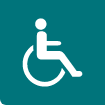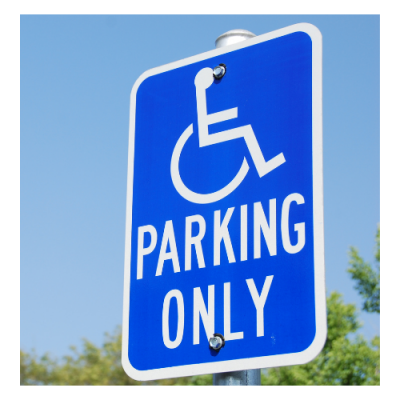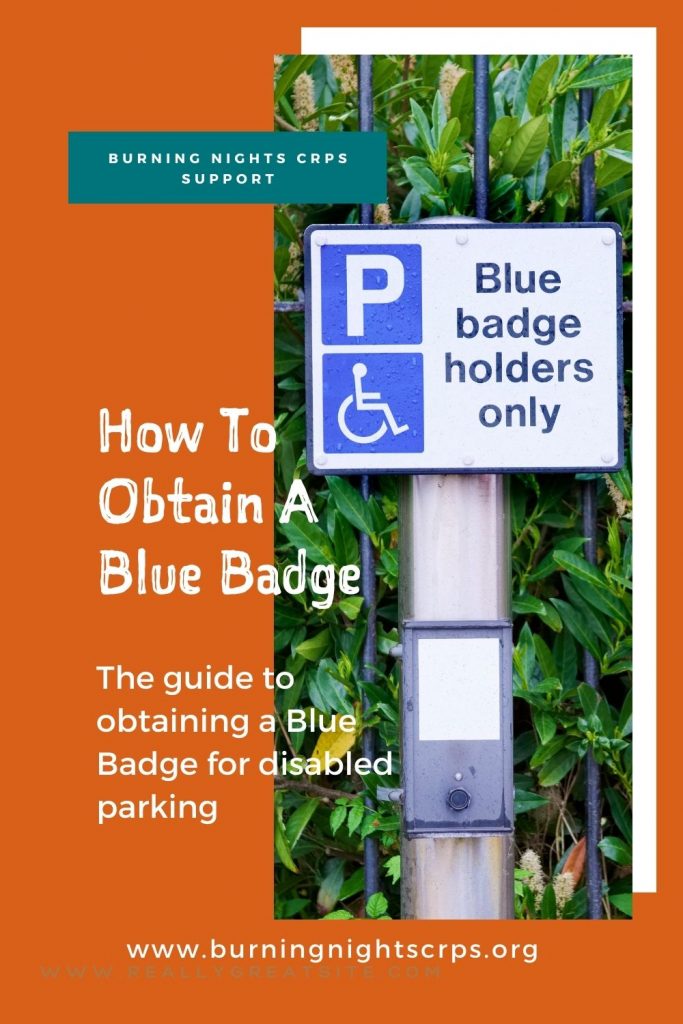We use cookies to improve your experience. By accepting you agree to our cookie policy


A Blue Badge is an aid designed for people who have mobility challenges. The purpose is to make it easier for people with certain health conditions to access car parking spaces that are closer to their destination.
The Blue Badge is issued by local councils around the UK and there are specific rules outlining their use. The application process is the same for residents of in England, Scotland, and Wales (link found here). The only exception is Northern Ireland (link found here).
Generally, a Blue Badge will allow the holder to park for free in the following locations:
When parking on a public street, there is no car parking charge and unless otherwise stated, there is no time limit on how long you can remain there. When parking in a private disabled access car parking space, there may be a charge and/ or time restrictions. A full list of where registered disabled drivers can park can be found here by typing in your postcode.
The aim of the scheme is to make access to services easier for people with mobility challenges, however a Blue Badge holder must still obey the normal rules of the road. For example, it is not permitted to park in a location that would cause an obstruction to traffic or would otherwise hinder other road users.
Who can apply for a Blue Badge?
Children and Blue Badge Applications
Other eligibility criteria for a Blue Badge
Providing proof of eligibility
Differences between Scotland, Northern Ireland, Wales, and England

The badge is tied to you personally and not any specific vehicle. There are strict rules around proper use, and you must not lend the badge to anyone who is not authorised to use it.
In most cases, your badge will be valid for 3 years but will have an expiry date listed and it is recommended to renew at least 8 weeks before expiry. It can take up to 3 months for your application to be assessed, but this may be impacted by COVID-19 delays.
The badge remains the property of the issuing council and if it is found to be used improperly, it can be rescinded and fines of up to £1,000 may be issued. The cost of the badge varies between England, Scotland, Northern Ireland, and Wales (further details outlined below).
Who can apply for a Blue Badge?
Children and Blue Badge Applications
Other eligibility criteria for a Blue Badge
Providing proof of eligibility
Differences between Scotland, Northern Ireland, Wales, and England
Do you qualify for a Blue Badge permit? In England, some people, who are aged 2 or over will automatically qualify for a badge (but they will still need to apply). If any of the points below apply to you, you will automatically be granted a badge.
If none of these criteria apply to you, that does not mean that you cannot receive a Blue Badge. There are some other eligibility criteria that mean your application may be accepted.
There are also special rules that apply if you have a child under the age of 3. You can get a blue badge if:
If your child doesn’t automatically qualify for a blue badge, they may still qualify under the ‘assessed route.’ This means that the local authority carries out an assessment of your child’s needs. You will still need to complete a Blue Badge application form, and your local authority will most likely also want information from health or social care professionals who know your child
Bulky medical equipment refers to ventilators, suction machines, feed pumps, parenteral equipment, syringe drivers, oxygen administration and saturation monitoring equipment. As well as this, casts and associated equipment for the correction of hip dysplasia are included in the definition.

The full list of qualifying criteria can be found here. Below is a list of some of these criteria and information on how to know if your application will be accepted by your local council.
You may submit an application if you meet some of the following criteria:
These conditions alone will not automatically grant you a Blue Badge permit. When you apply to your local council, you should provide all the relevant documentation as part of the application (see below for further details). The ‘assessed route’ means that your case will be decided on an individual basis.
The assessor will take into consideration how far you can walk, and how you are affected by walking, amongst other things. The bar is set quite high, so not all people with mobility issues will get a badge. However, it is worth looking into and thinking about making an application.
You also have the right to appeal if your application is not approved or if your circumstances change.
Fortunately, there is an easy-to-use online Blue Badge application form which makes it easy to apply. Below we have detailed all the information that you will need to provide and give you some advice on what you can expect from the process. You can apply online if you’re in England and Wales, Scotland and Northern Ireland.
For the online process, you can submit a photograph or scan of the below documents.
It is recommended to apply online to make the process as smooth as possible. However, if you have any accessibility issues around using the online form, contact your local council for more support.
The Department for Transport recently published a short video to guide you through the steps, while a comprehensive video on each step with detailed explanations can be found here.
Some of the official documents you will need to provide include:
The online application form will request proof of benefits. Whether this is the Personal Independent Payment (PIP), the Disability Living Allowance (DLA), Armed Forces Compensation Scheme or the War Pensioner’s Mobility Scheme, you should provide a photo or scan of the official letter with the relevant pages clearly displayed. For further details on the pages you need to submit, use this gov.uk page.

Once you have gathered the required information in terms of proving your identity, address and proof of benefits, the online form will ask for details of your condition. This helps the council to make a decision on issuing the Blue Badge.
Depending on the council, you may be asked to provide evidence of a medical diagnosis, your prescription for certain medication, or a doctor’s letter that states your medical reasons for needing a Blue Badge.
It may be the case that you are asked to provide further information on how your condition requires a Blue Badge. For example, you could be asked about walking between your car and your destination and any challenges you would face in doing so.
In general, most of the rules on the use of the Blue Badge scheme are similar across all four areas of the UK. We have outlined some of the main differences below, but you should check with your local council if you have any questions.
England, Wales, and Northern Ireland: Vehicles displaying a Blue Badge may park on single or double yellow lines for up to 3 hours
Scotland: No time limit on single or double yellow lines
England and Northern Ireland: Councils may charge up to £10
Scotland: Up to £20
Wales: No charge
London: Blue Badge holders in London do not need to pay the congestion charge (but if you are not a resident, you must pay a registration fee to Transport for London 10 days in advance of your journey)
England: As of 30 August 2019, non-visible (hidden) or cognitive disabilities are now covered (more information found here) but you may be asked to provide extra evidence or details. This could include:
Scotland and Wales: Non-visible or cognitive disabilities are recognised but may vary by individual council
Northern Ireland: Non-visible or cognitive disabilities are not yet recognised as eligible reasons for a Blue Badge
England and Wales: Apply online here (gov.uk)
Northern Ireland: Apply online here (nidirect.gov.uk)
Scotland: Apply online here (mygov.scot)
Living with a chronic illness does not mean that ordinary things like going to the shop are impossible. There are many supports available for you to be able to live life normally with some adjustments, and we here at Burning Nights CRPS are here to help you every step of the way.
If you want to read more information about travelling with CRPS, our helpful article gives you plenty of information on how to make the process as simple and safe as possible.
Do you have any questions or comments about the Blue Badge application process? Let us know in the comments below or you can contact us here. If this article was helpful to you, we’d love you to share it using any of your social networks.
We use cookies to improve your experience. By accepting you agree to our cookie policy
 £
£